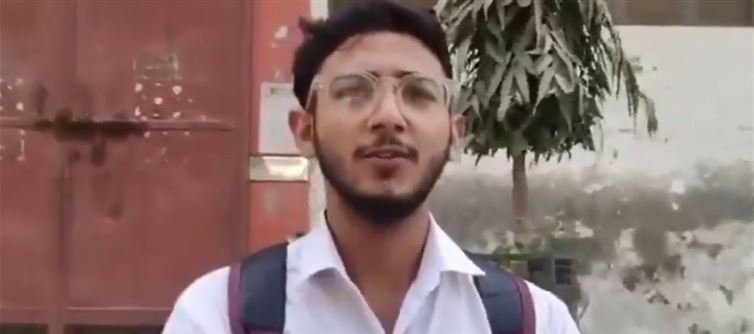
THE PRICE OF A degree — ₹7,000 AND A LIFE
Ujjwal Rana, a student of DAV PG college, Muzaffarnagar, is gone.
He didn’t die of illness, accident, or crime.
He died because he couldn’t pay his college fee — seven thousand rupees.
In a nation that boasts about GDP growth and “Digital india,” a young life was lost because he couldn’t afford education, the very ladder meant to lift people out of poverty.
His death is not a personal tragedy alone; it’s a collective moral failure.
WHEN POVERTY MEETS APATHY
Higher education in india still assumes that if you can’t pay, you don’t belong.
Fee structures keep rising, while scholarships remain uneven and poorly implemented.
Support systems for economically weaker students, regardless of community, are scattered, underfunded, or trapped in bureaucracy.
A welfare state that promises equality cannot function on paperwork that ignores economic hardship just because it doesn’t fit a pre-defined box.
SOCIAL JUSTICE CAN’T IGNORE ECONOMIC REALITY
Affirmative-action policies were built to correct centuries of exclusion.
But they were never meant to overlook those who are economically vulnerable in every group.
Real social justice must include both historical disadvantage and present-day poverty.
When a student dies for want of a few thousand rupees, it’s a sign that the safety net has holes big enough for dreams to fall through.
THE INVISIBLE STUDENTS
There are thousands of students like Ujjwal — quietly working part-time, skipping meals, taking loans, or dropping out to save face.
They don’t trend on social media because poverty isn’t glamorous.
They are the invisible casualties of an education system that measures merit but not means.
The right to education doesn’t end with admission.
It begins when every student can afford to stay enrolled.
WHAT NEEDS TO CHANGE
• National need-based financial aid: direct, quick, transparent support for any student in financial distress.
• Fee-waiver parity: no deserving student should be excluded purely because of income, regardless of category.
• Mental-health and counselling units in every college — so desperation never turns fatal.
• Administrative accountability: universities must be held responsible for preventable student suicides.
EPILOGUE: A LIFE THAT SHOULD HAVE BEEN SAVED
Seven thousand rupees.
That’s less than the cost of a government banquet.
Less than a smartphone.
Less than a single day’s fuel bill for a politician’s convoy.
And yet, that was the price tag on a student’s life.
Ujjwal’s death is not just a statistic — it’s a verdict on an unequal system that talks of empowerment but practises exclusion.
If a democracy cannot protect the poor student’s right to study, what good is its development story?




 click and follow Indiaherald WhatsApp channel
click and follow Indiaherald WhatsApp channel